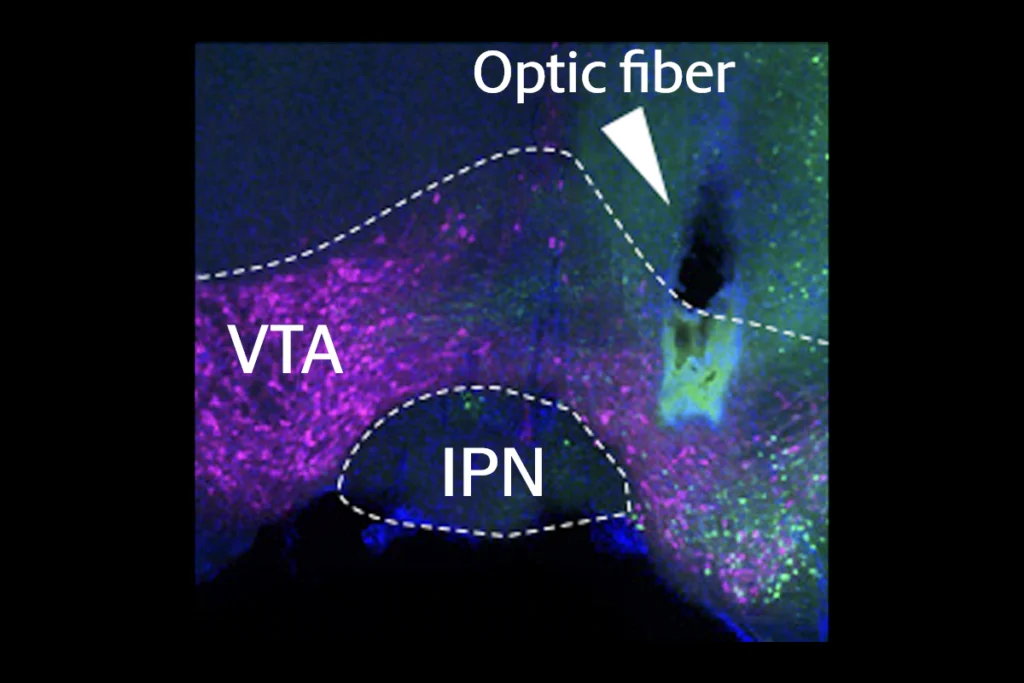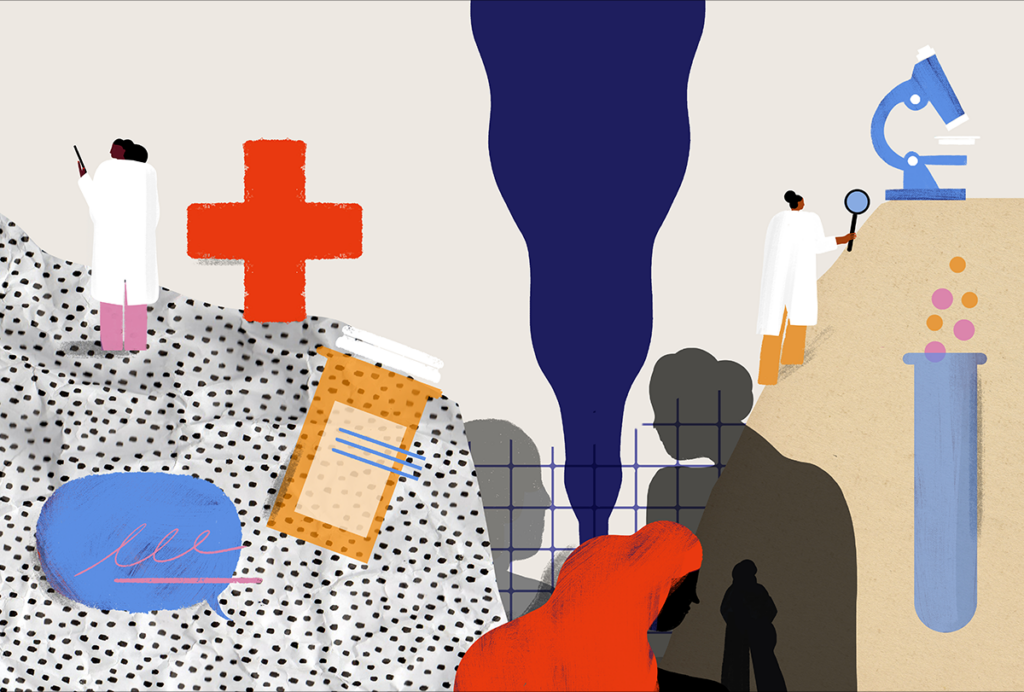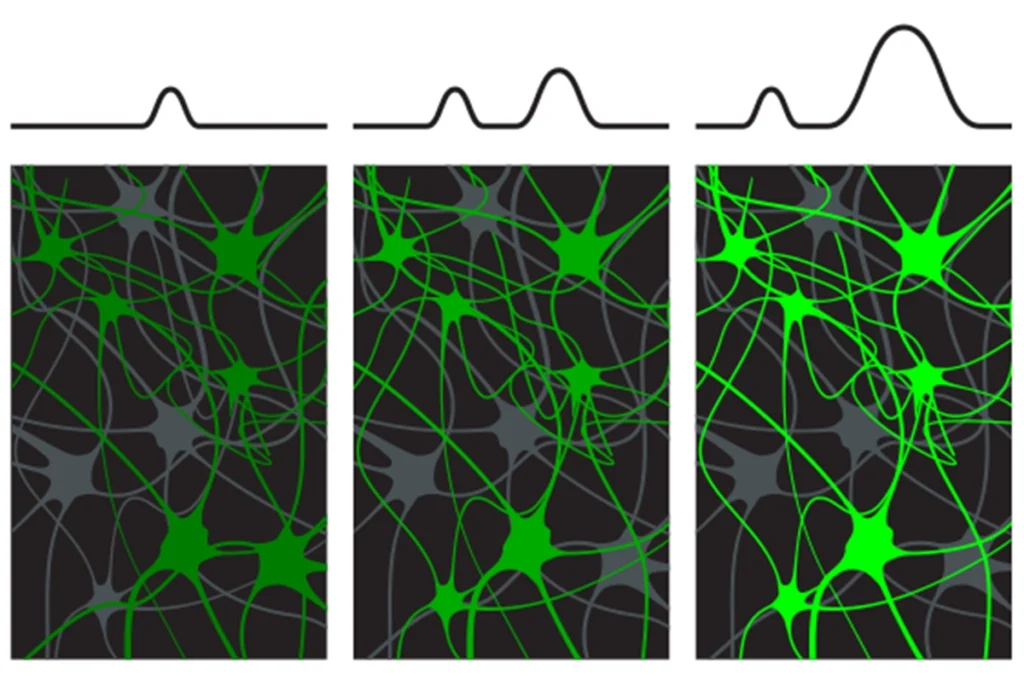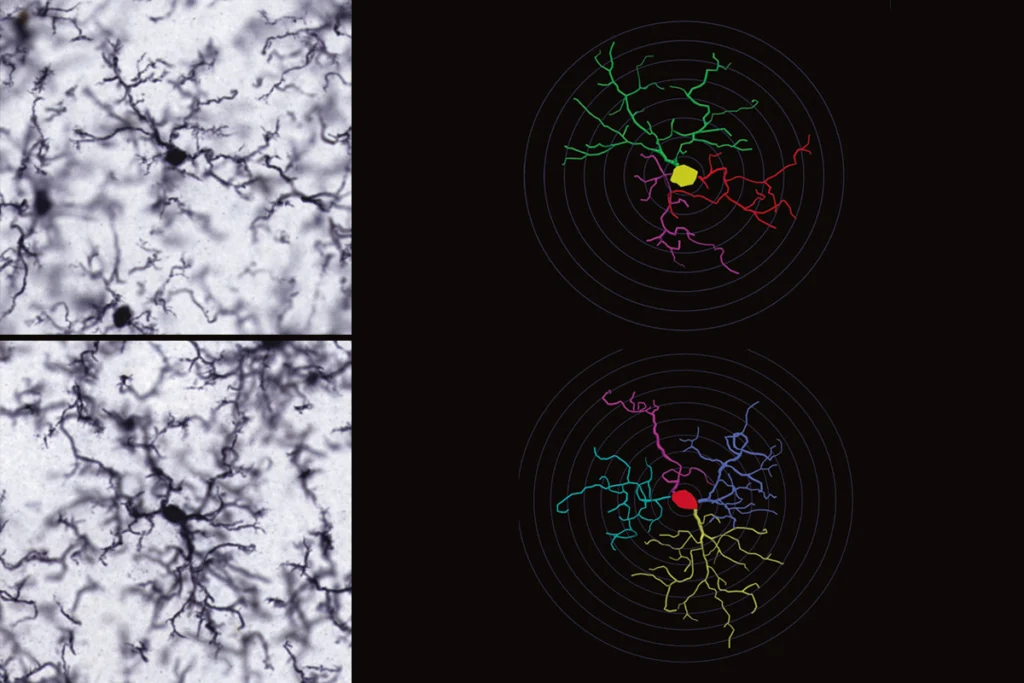Addiction
Recent articles
‘Understudied secret’ in brain dampens nicotine drive in mice
The interpeduncular nucleus produces an aversion to nicotine, even at low doses, and helps moderate how rewarding mice find the drug.

‘Understudied secret’ in brain dampens nicotine drive in mice
The interpeduncular nucleus produces an aversion to nicotine, even at low doses, and helps moderate how rewarding mice find the drug.
Neuroscientists need to do better at explaining basic mental health research
The knowledge gap between scientists, health-care professionals, policymakers and people with mental health conditions is growing, slowing the translation of basic science to new treatments. Like lawyers learning to present a case to the court, scientists should learn to educate nonscientists about their findings.

Neuroscientists need to do better at explaining basic mental health research
The knowledge gap between scientists, health-care professionals, policymakers and people with mental health conditions is growing, slowing the translation of basic science to new treatments. Like lawyers learning to present a case to the court, scientists should learn to educate nonscientists about their findings.
Striking a pose with Aya Osman
The neuroscientist and part-time fashion model opens up about the people who inspire her; her interest in science communication; and how she once ended up on a stage with Channing Tatum.

Striking a pose with Aya Osman
The neuroscientist and part-time fashion model opens up about the people who inspire her; her interest in science communication; and how she once ended up on a stage with Channing Tatum.
Cocaine, morphine commandeer neurons normally activated by food, water in mice
Confirming a long-held hypothesis, repeated exposure to the drugs alters neurons in the nucleus accumbens, the brain’s reward center, and curbs an animal’s urge for sustenance.

Cocaine, morphine commandeer neurons normally activated by food, water in mice
Confirming a long-held hypothesis, repeated exposure to the drugs alters neurons in the nucleus accumbens, the brain’s reward center, and curbs an animal’s urge for sustenance.
Temperament is innate but hackable, animal studies suggest
Emotional reactivity and vulnerability to stress are largely inherited in rodents — but can be modified in early life by targeting inflammation-related cells or even just adjusting an animal’s environment.

Temperament is innate but hackable, animal studies suggest
Emotional reactivity and vulnerability to stress are largely inherited in rodents — but can be modified in early life by targeting inflammation-related cells or even just adjusting an animal’s environment.
Explore more from The Transmitter
Inner retina of birds powers sight sans oxygen
The energy-intensive neural tissue relies instead on anaerobic glucose metabolism provided by the pecten oculi, a structure unique to the avian eye.

Inner retina of birds powers sight sans oxygen
The energy-intensive neural tissue relies instead on anaerobic glucose metabolism provided by the pecten oculi, a structure unique to the avian eye.
Neuroscience needs single-synapse studies
Studying individual synapses has the potential to help neuroscientists develop new theories, better understand brain disorders and reevaluate 70 years of work on synaptic transmission plasticity.

Neuroscience needs single-synapse studies
Studying individual synapses has the potential to help neuroscientists develop new theories, better understand brain disorders and reevaluate 70 years of work on synaptic transmission plasticity.
New insights on sex bias in autism, and more
Here is a roundup of autism-related news and research spotted around the web for the week of 16 February.

New insights on sex bias in autism, and more
Here is a roundup of autism-related news and research spotted around the web for the week of 16 February.